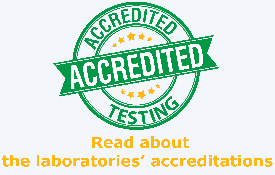Down Syndrome & NIPT (Non Invasive Prenatal Testing)

Down Syndrome is an extremely common disorder where an extra chromosome (chromosome 21) is present in each cell. The effects of this disorder range from person to person, so options to treat and maintain it are quite varied. You need to be able to step back and look at you and your child’s individual situation before you decide what kind of specialty treatment you need to seek.
Another important factor to keep in mind is general preparation for having a baby with Down Syndrome. In most countries, it is standard for any expectant mother to undergo certain tests to assess the health and wellbeing of the unborn baby. Once of the most widely known is the ultrasound – a method which uses sound waves to create images. You can get a standard screening test such as an ultrasound but you can also opt for more accurate methods such as the NIPT test (non-invasive prenatal test) which has 99% accuracy. Read more about Down Syndrome non-invasive prenatal testing.
Health Specialists
One of the first things you should do if you find out your child has or is going to have Down Syndrome is work towards gets a team of specialty physicians on your side. Children born with Down Syndrome suffer a greater risk of heart defects, gastrointestinal issues, lung difficulties, and much more.
Don’t forget, this varies from person to person, but you should have people on standby so that they can identify the problem areas for your little one. This step could save you and your child from many other problems in the future.
Why a Physical Therapist?
Children who are born with Down Syndrome generally suffer from low muscle tone. This lack of muscle can mean injuries from doing simple things that would not bother other kids their age. Having a physical therapist on hand will help your little one develop stronger muscles, motor skills, and make them more receptive to the world around them. The physical aspect Down Syndrome can be the most challenging early on, so pay very close attention to this aspect.
Benefits of Testing
Many people think that Down Syndrome is hereditary. This statement is simply not true. A study found that only 1% of people affected by Down Syndrome show even a chance that there were hereditary factors in play. Because of the sporadic nature of this disorder screening tests are crucial.
Your doctor can perform a simple blood test to see if your child carries a chance of having this disorder before they are even born. The NIPT can get up to a 99% accuracy! However, screening tests are only indicative so in some cases you may be recommended to undergo diagnostic tests. Remember Down Syndrome affects everyone differently. If you are unsure of whether or not your child runs the risk call today and schedule a screening test.









